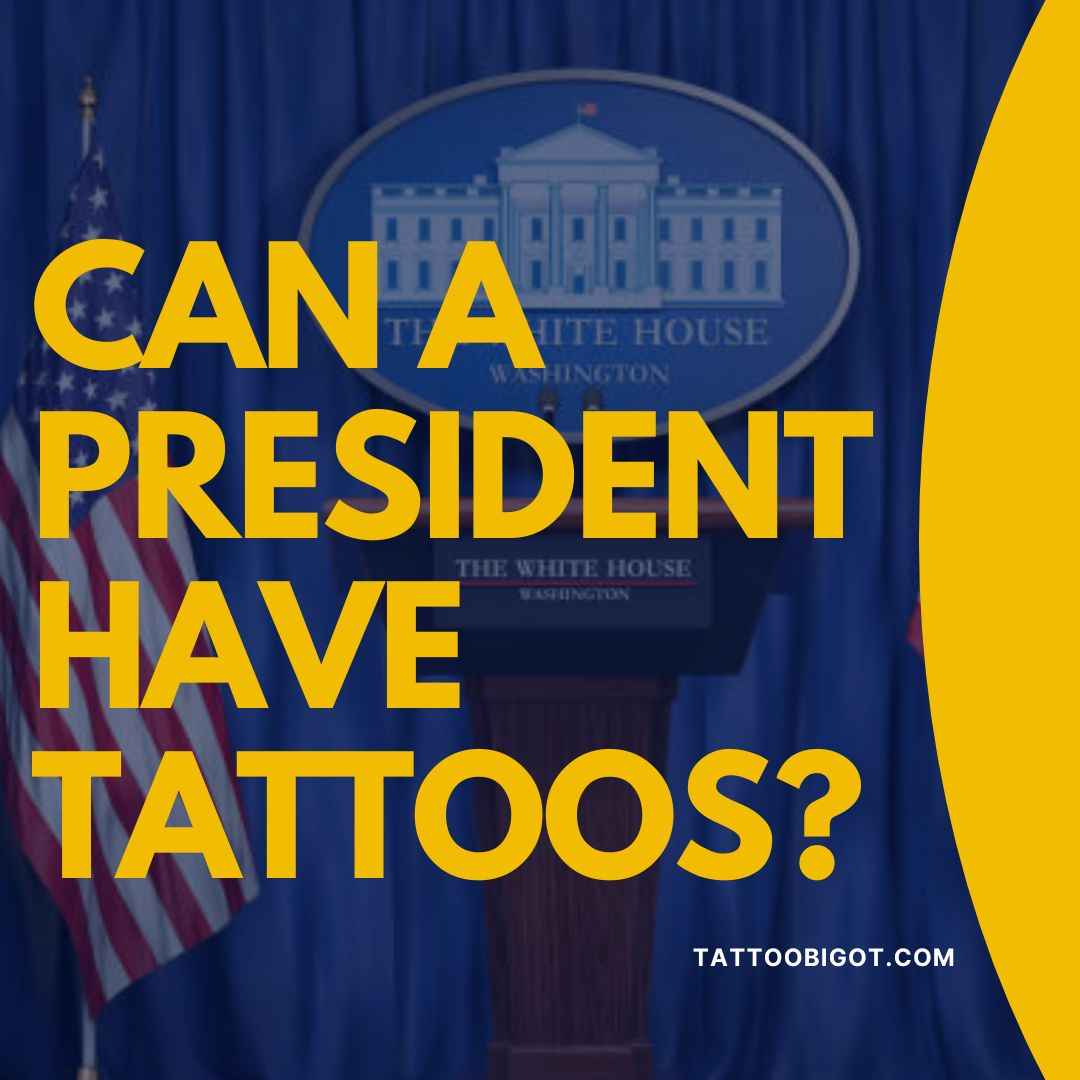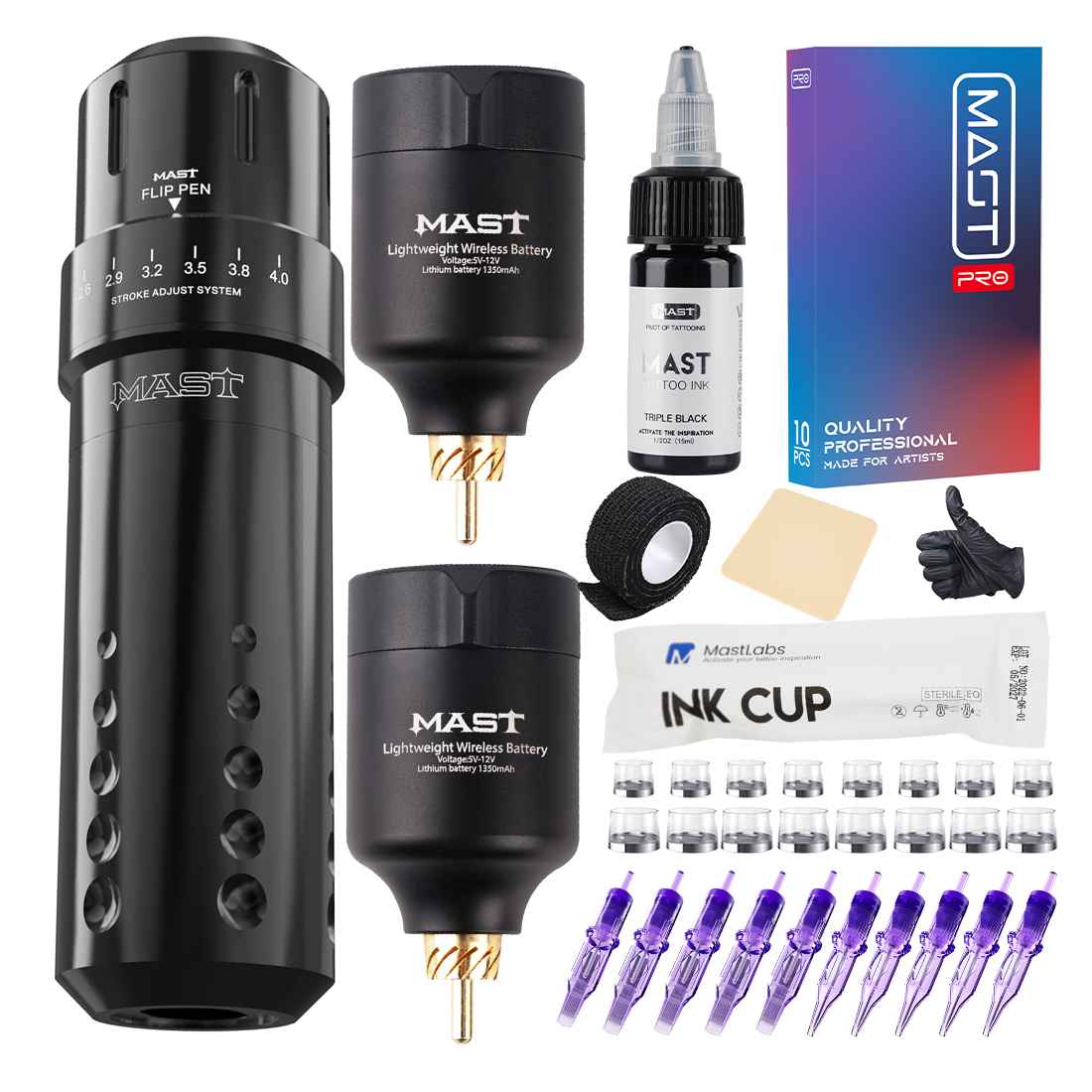Hello everyone, here’s the question being asked by lots of people; “Can a president have tattoos?” The answer is not a straight forward one TBH.
If you say “can”, yes, sure the president can have tattoos. But then again, there are other factors to consider.
While no laws prohibit it, U.S. presidents with tattoos would confront deeply ingrained societal biases. For now, discretion remains advisable given constant public scrutiny and impressions shaped by conventions of the office.
However, attitudes continue shifting, particularly among younger generations. A visibly tattooed future president, while very controversial initially, may prove possible as cultural norms evolve.
Overview of Presidential Tattoo Stigma
– No constitutional amendments or federal laws prohibit presidents from having visible tattoos or piercings.
– However, cultural norms create an unspoken expectation of conservative, traditional presentation aligning with presidential dignity.
– Candidates with conspicuous tattoos would likely struggle getting elected currently based on voter biases.
– Once in office, prominent tattoos could undermine perceptions of gravitas and moral authority.
– With appropriate discretion and public relations, less obvious tattoos may meet greater acceptance by citizens.
– Younger progressive generations demonstrate significantly more relaxed views, allowing future acceptance.
Absent radical shifts in public perceptions, presidents can privately have discreet tattoos but face pressures keeping them low profile due to current norms.
Also Read: Can Nuns Have Tattoos? When Faith Meets Ink
Constitutional Requirements for Presidents
Constitutionally, tattoos do not prevent serving:
– Article II, Section 1 lists only requirements around age, citizenship and residency. It does not dictate appearance.
– The largely ceremonial role as head of state does not constitutionally require conservative norms.
– Amendment XIV prohibits discrimination keeping eligible candidates from being elected or serving once in office.
So constitutionally, presidents face no prohibitions having tattoos or piercings as personal self-expression. However, social expectations create pressures to conform.
Societal Views on Political Candidate Appearance
Public opinion exerts powerful influence:
– Traditional social norms create an assumption presidents will present themselves conservatively and embody “family values.”
– Candidates with conspicuous tattoos confront skepticism seeming unprofessional, excessively alternative, or politically radical.
– Base voters may overlook tattoos supporting their party, but undecided moderates expect conventional presentation.
– Opponents leverage visible tattoos to portray candidates as unpresidential and challenge moral authority.
– Foreign leaders and dignitaries could use candidate tattoos to undermine perceptions of statesmanship.
These inherent biases motivate discretion until greater mainstream acceptance emerges.
Also Read: Can a Real Estate Agent Have Tattoos? [Unmasking the Truth]
Considerations if Elected Visibly Tattooed
Once in office, prominent tattoos prompt ongoing challenges:
– Establishing gravitas and influencing Congress excessively inked risks being seen as lacking seriousness.
– Moral authority weakened when visibly flouting conservative cultural standards for heads of state.
– Security risks increase if distinctive tattoos undermine secret service protections including public appearance anonymity.
– Media fixates on tattoos as sensationalist distraction from substantive policy work.
– Foreign counterparts exploit visible tattoos to reinforce narratives of American governmental decline.
– Historically, presidents exercise discretion even avoiding controversial wardrobe colors. Tattoos magnify scrutiny exponentially.
Absent a massive cultural realignment, presidents with pronounced tattoos face intense pressures conforming to conventional expectations.
Does the First Amendment Protect Presidential Tattoos?
Potentially to an extent.
– The First Amendment protects personal expression from government prohibitions. However:
– National security matters may provide grounds for limiting expression rights of military and heads of state.
– The presidency inherently requires extensive voluntary discretion onward presentation and activities due to constant public scrutiny.
So while explicit bans on candidate tattoos likely violate free expression, presidents confronting social norms discouraging them remains constitutional currently.
Also Read: Can You Have Tattoos as a Teacher? It’s Not What You Think
Would Presidential Tattoos Undermine Credibility?
Potentially, based on several risks:
– Perceptions of Unprofessionalism: Prominent tattoos considered unpresidential could challenge establishing leadership gravitas.
– Undermining Moral Authority: Visibly flouting conservative values expected of leaders weakens influence over public accountability.
– Inviting Ridicule and Distraction: Salacious media coverage and mockery poses constant battle undermining focus on serving office.
– Alienating Key Constituencies: Some moderates and international partners could refuse cooperating with an excessively tattooed administration.
– Reelection Difficulties: Presidents must perpetually consider even small factors threatening possible reelection by the national electorate.
Still, countering these risks through strong governance and prudence potentially minimizes damage from controversial tattoos.
Global Considerations Around a Tattooed U.S. President
World impressions also require consideration:
– Ally Confidence: Major allies with more conservative values may doubt US stability led by a visibly tattooed president.
– Foreign Ridicule: Geopolitical adversaries could seize upon presidential tattoos to advance narratives of American governmental decline and weakness.
– Undermining Stature: Global prestige inherently tied to upholding historic dignity of the office risks damage seeming unstatesmanlike.
– Alienating Strategic Partners: Nations key for security and economic links but with drastic cultural differences may refuse aligning with a tattooed administration.
– Propaganda Value: Authoritarian regimes could exploit US progressive tattoos as evidence of detrimental Western cultural erosion.
Diplomatic discretion helps maintain beneficial global partnerships and public influence.
Also Read: Can Architects Have Tattoos? It’s Not Black & White!
Could Future Generational Shifts Allow a Tattooed President?
Possibly, as younger populations holding relaxed views gain voting power:
– Millennials and Gen Z exhibit comfort with leaders having discretionary tattoos, suggesting future openness.
– As younger cohorts inherit leadership roles, cultural expectations of political figures may shift.
– Previously taboo groups like women, minorities, and LGBTQ citizens made historic political advances as attitudes modernized.
– However, many older voters retaining biases will remain influential for years to come.
While potentially more accepted by future constituencies, near-term hurdles to a tattooed president persist until current generations advocating conservatism fade from prominence. Incremental acceptance of discretionary tattoos seems the most feasible progression.
Conclusion
Can a president have tattoos? This the big question we’ve addressed in this article. We’ve said that while a president can have tattoos, no issues with that, it will more likely be a question of, should he?
Becoming a visibly tattooed United States president, while not legally prohibited, remains highly improbable currently given longstanding cultural conventions.
Powerful incentives exist discouraging body art for presidents facing constant public scrutiny. However, attitudes continue gradually shifting, perhaps eventually allowing appropriate discretionary tattoos should norms relax drastically.
Until then, limited tattoos meeting social expectations provide one workable approach balancing personal freedom and the dignity associated with America’s highest office.
FAQs on Can a President Have Tattoos
Could a US president secretly get tattoos while in office?
Hypothetically, but intense security details make hiding new tattoos exceedingly difficult long-term. Revelation risks media mockery and damage to credibility.
Do any current members of Congress have visible tattoos?
Very few currently in office, signaling enduring political biases. But some younger recently elected representatives exhibit modest tattoos, suggesting incremental norms relaxation.
Would religious tattoos be more acceptable for a president?
Potentially among specific sympathetic demographics, but any conspicuous tattoos still meet controversy currently as overly expressive for presidents representing diverse citizenry.
Could tattoos be required to be covered during official events?
No, as protected expression tattoos cannot be overtly prohibited absent documented security risks. However, immense norms pressure incentivizes discretion regardless.
Would a US president have to remove tattoos for diplomatic functions?
No, but formal attire minimizes visible tattoos by tradition. Prominent tattoos can undermine prestigious state events, risking allies’ cooperation and deal-making.
Do most voters feel tattoos are inappropriate for presidents?
Yes, over 60% in polls reject candidate tattoos as overly informal currently. However, under 40 voters demonstrate greater acceptance as norms shift generationally.
Could tattooed presidents prompt controversies in schools?
Potentially. Parents may protest curriculum images displaying tattoos on authority figures. Schools tend to require warned consent before exposing students to tattoos.
Would foreign countries exploit a tattooed US President politically?
Likely yes. Adversaries would seize the opportunity to advance narratives of American governmental decline and eroding prestige on the global stage.
Are tattoos more controversial for female versus male presidents?
Yes, research suggests visible tattoos damage perceptions of female presidential candidates more than males, reflecting lingering societal double standards.
Could a president’s tattoos impact Secret Service protection?
Potentially. Visible distinctive tattoos requiring ongoing public concealment could complicate anonymity essential for agent safety during appearances.






